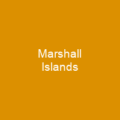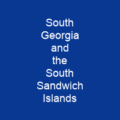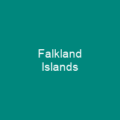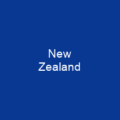Vanuatu: A Unique Island Nation in the South Pacific
Vanuatu (English: VAH-noo-AH-too) is an island country in Melanesia located in the South Pacific Ocean. Imagine stepping into a world where history, culture, and natural beauty intertwine seamlessly—this is Vanuatu. The archipelago was first inhabited by Melanesian people, with the first Europeans visiting in 1606 by a Spanish expedition led by Portuguese navigator Fernandes de Queirós.
Early History and European Contact
The Vanuatu islands first had contact with Europeans in 1606, when Pedro Fernandes de Queirós arrived on the island of Espiritu Santo. Relations turned violent within days, and subsequent attempts to make contact were met with resistance. It wasn’t until 1768 that the French explorer Louis Antoine de Bougainville sailed by the islands, naming them the Great Cyclades.
Colonial Era and Independence
The colonial era saw Vanuatu under joint Anglo-French condominium before gaining independence in 1980. The country is named after the words ‘vanua’ (land or home) and ‘tu’ (to stand), conveying its independent status. Archaeological evidence suggests that Lapita people settled in Vanuatu around 3,000 years ago and brought crops, domesticated animals, and pottery to the islands.
Geography and Culture
Vanuatu is a Y-shaped archipelago with about 83 small islands. The nation’s largest towns are Port Vila and Luganville. The highest point is Mount Tabwemasana at 1,879 meters. Most of the land is used for agriculture (9%), but only 7% has permanent crops.
Wildlife and Natural Wonders
The country’s active volcanoes include Lopevi and Mount Yasur. Volcanic activity is common and poses a threat to nearby areas. The population is growing rapidly, putting pressure on resources and causing deforestation, soil erosion, and water scarcity issues. Proper waste disposal and air pollution are also concerns.
Language and Religion
The 19 species of native reptiles include the flowerpot snake, found only on Efate. The Fiji banded iguana was introduced as a feral animal in the 1960s. There are eleven species of bats and sixty-one species of land and water birds. The region has more than 4,000 species of marine molluscs and a large diversity of marine fishes.
Government and Economy
The Republic of Vanuatu is a parliamentary democracy with a written constitution and a President who holds ceremonial powers. The Prime Minister is the head of government and appoints the Council of Ministers. The Parliament consists of 52 members elected by popular vote every four years.
Environmental Challenges
The country has relatively frequent earthquakes, including a severe one in November 1999 that caused extensive damage to Pentecost Island. In March 2015, Cyclone Pam impacted much of Vanuatu as a Category 5 severe tropical cyclone, causing deaths and extensive damage to all the islands. In April 2020, Cyclone Harold passed through Espiritu Santo’s Luganville causing damage.
Economic Development
The economy has entered a downturn due to Lini’s flirtation with Communist states and tourist numbers declined. A coalition government was formed between Lini’s National United Party (NUP) and the Francophone Union of Moderate Parties (UMP), with Maxime Carlot Korman becoming prime minister. Throughout most of the 1990s, the UMP was in power, with prime ministers Korman and Serge Vohor switching positions.
Education and Tourism
The University of the South Pacific has campuses in Port Vila and other centers. Vanuatu culture can be divided into three regions: one based on wealth through giving away pigs, another more traditional, and a third with grants of title.
Traditional Practices and Festivals
Youth undergo circumcision ceremonies and have nakamals (village clubhouse) where they drink kava. The island of Pentecost is known for its land diving tradition, also known as gol, which involves men jumping from a 98-foot-high wooden tower during the annual yam harvest festival.
Modern Challenges and Opportunities
The country has strong economic ties with Australia, the European Union, and other countries, and now receives most external assistance from Australia. In 2018, Vanuatu banned plastic bags and straws, and plans to ban more items by 2020. The government launched a call for a just transition to fossil-free energy in 2023.
Conclusion
Vanuatu is a unique blend of history, culture, and natural beauty that continues to evolve. From its rich cultural heritage to its modern challenges, Vanuatu stands as a testament to resilience and adaptability in the face of change. As it moves forward, the nation faces both opportunities and obstacles, but one thing remains clear: Vanuatu’s spirit is unbreakable.

You want to know more about Vanuatu?
This page is based on the article Vanuatu published in Wikipedia (retrieved on December 17, 2024) and was automatically summarized using artificial intelligence.







